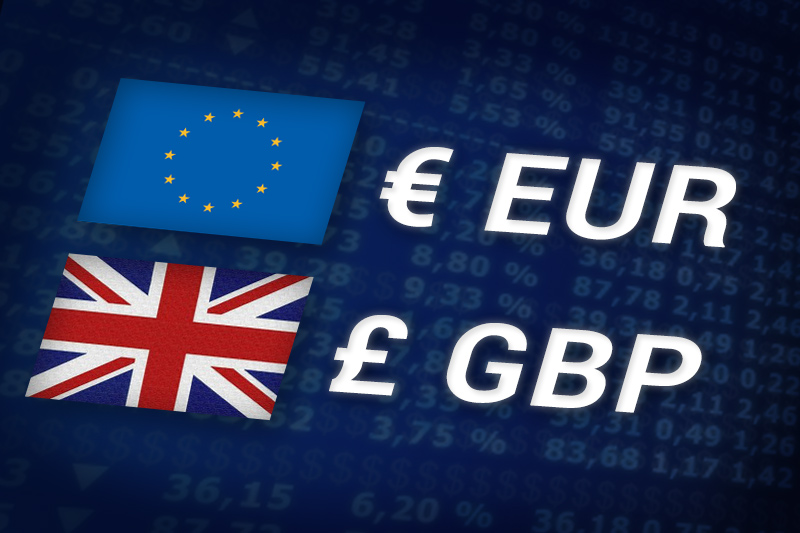Investing.com – The euro was higher against the pound on Wednesday, boosted by better euro zone economic data and fresh hopes that talks on an aid program for Greece will conclude in the coming days.
EUR/GBP hit 0.8343 during European morning trade, the session high; the pair subsequently consolidated at 0.8339, gaining 0.45%.
The pair was likely to find support at 0.8281, the session low and resistance at 0.8384, Tuesday’s high.
The euro was boosted after data showed that the euro zone’s manufacturing purchasing managers’ index rose to 48.8 from an earlier estimate of 46.9 in December, but the data showed that only Germany registered a reading above 50, indicating expansion.
Meanwhile, preliminary data showed that the rate of consumer price inflation in the euro zone eased to 2.7% in December from 2.8% the previous month, giving the European Central Bank more leeway to cut rates.
Earlier Wednesday, Greek newspaper Kathimerini reported that the head of the International Monetary Fund mission to Athens said talks on a new loan program for the country will conclude within a matter of days.
Earlier in the week, Greek officials indicated that separate negotiations with the country’s private creditors were very close to being concluded, but concerns have persisted that the debt swap deal will not go far enough to reduce the country’s debt load.
The euro was also higher against the U.S. dollar, with EUR/USD adding 0.39% to hit 1.3134.
Also Wednesday, data showed that the manufacturing sector in the U.K. expanded at the fastest pace in eight months in January, as output grew at the fastest rate in 10 months and new orders rose.
The Markit manufacturing PMI rose to 52.1, the highest level since May, from an upwardly revised 49.7 in December, outstripping expectations for an increase to 50.1.
EUR/GBP hit 0.8343 during European morning trade, the session high; the pair subsequently consolidated at 0.8339, gaining 0.45%.
The pair was likely to find support at 0.8281, the session low and resistance at 0.8384, Tuesday’s high.
The euro was boosted after data showed that the euro zone’s manufacturing purchasing managers’ index rose to 48.8 from an earlier estimate of 46.9 in December, but the data showed that only Germany registered a reading above 50, indicating expansion.
Meanwhile, preliminary data showed that the rate of consumer price inflation in the euro zone eased to 2.7% in December from 2.8% the previous month, giving the European Central Bank more leeway to cut rates.
Earlier Wednesday, Greek newspaper Kathimerini reported that the head of the International Monetary Fund mission to Athens said talks on a new loan program for the country will conclude within a matter of days.
Earlier in the week, Greek officials indicated that separate negotiations with the country’s private creditors were very close to being concluded, but concerns have persisted that the debt swap deal will not go far enough to reduce the country’s debt load.
The euro was also higher against the U.S. dollar, with EUR/USD adding 0.39% to hit 1.3134.
Also Wednesday, data showed that the manufacturing sector in the U.K. expanded at the fastest pace in eight months in January, as output grew at the fastest rate in 10 months and new orders rose.
The Markit manufacturing PMI rose to 52.1, the highest level since May, from an upwardly revised 49.7 in December, outstripping expectations for an increase to 50.1.
